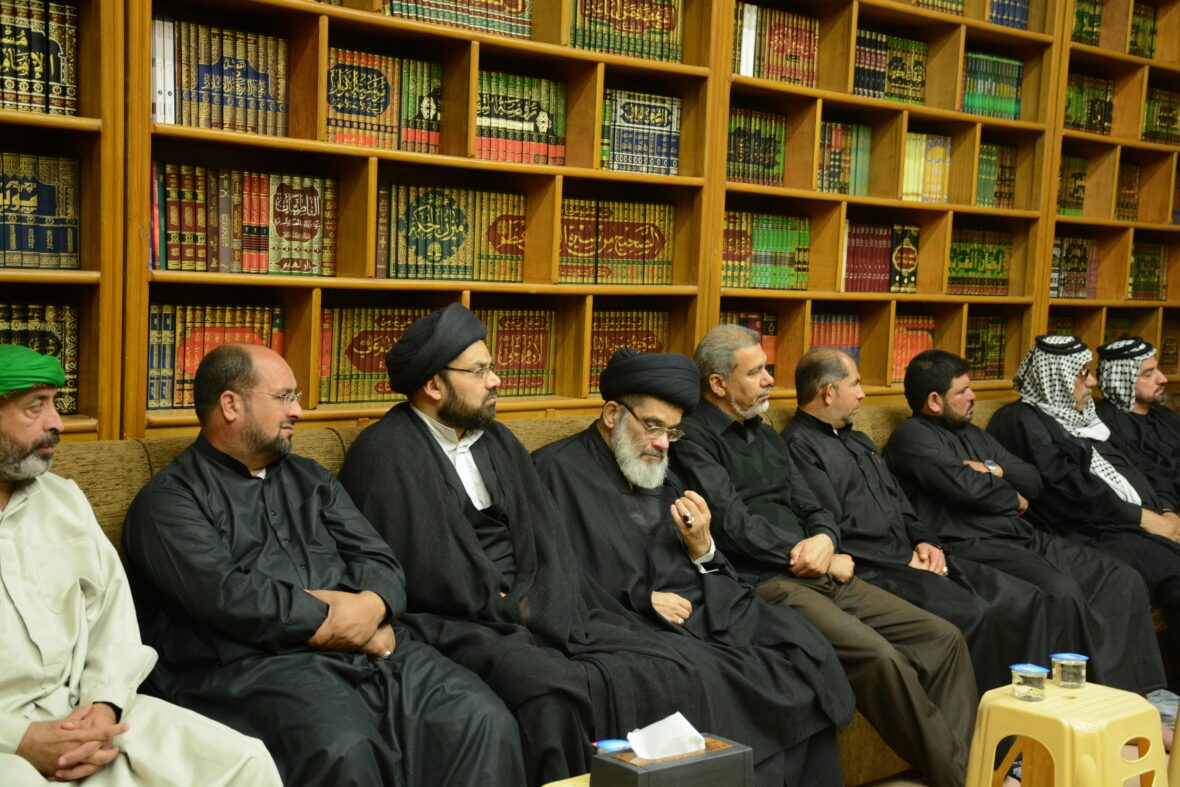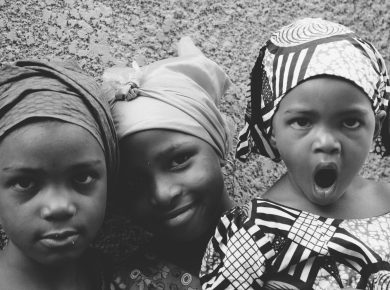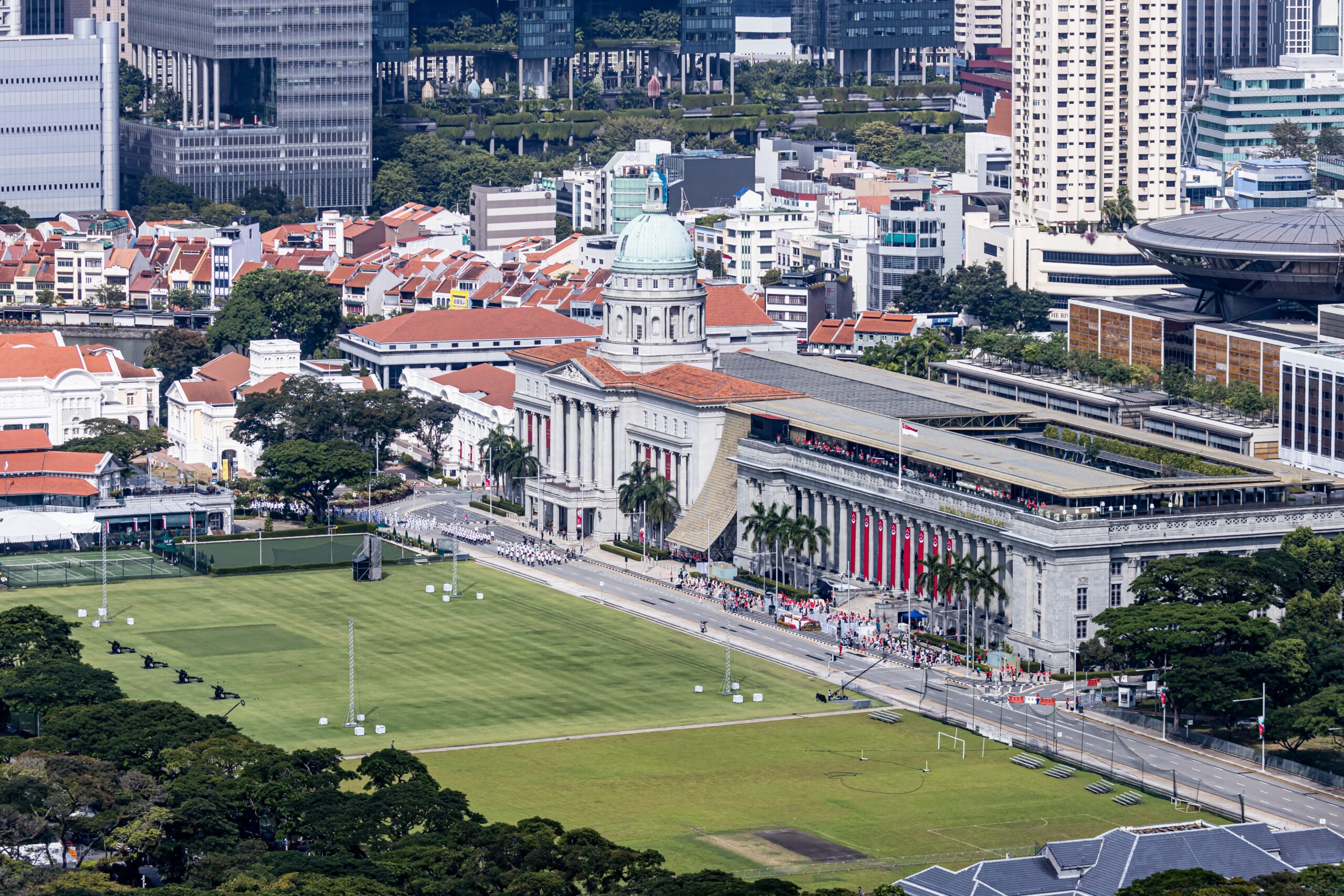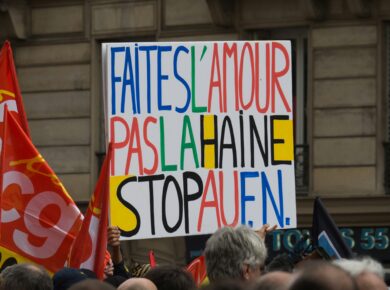Social studies is the study of man and his environment. The study of social studies contains interesting elements that make people learn more. We have developed this curriculum/course in a way to improve learning.
SOS 131 INTRODUCTION TO THE PHILOSOPHY OF SOCIAL STUDIES 3C
The nature, meaning, scope and history of social studies; Social Studies philosophy; studies. Foundation of Social Studies in Nigeria and Africa: Philosophical background of social studies education,n e.g. citizenship education, liberal education, population education.
SOS 132 MAN ‘S PHYSICAL ENVIRONMENT AND ADAPTATION 3R
The Nature and Element of the physical environment of m:n; its origin, Evolution, and Environment with man. The role of man as the agent changes. Application of the environmental resources. Effects of climate, vegetation and environmental changes.
SOS 133 MAN’S SOCIAL ENVIRONMENT 3R
The nature and elements of the physical environment of man; its origin, evolution, growth and development. The interrelationship of each component with man; Man as a primary and social group; descriptions, characteristics, functions and social problems.
SOS 134 MAN AND HIS PAST 3E
Man’s origin as both a biological and cultural being (including myths or legends, beliefs and science of the evolution of man). The uniqueness of man as a mammal, his capacity to adapt to different environments and the Universality of Man (Palaeolithic and Neolithic periods).
A special attention to the study of settlement patterns and civilisations of early man in the African continent. Basic concepts from archaeological discoveries and language distribution, and migration in Africa.
SOS 141 SOCIAL PROBLEMS AND ISSUES 3C
Analysis of social groups and associations, Formal organisations. The nature of different forms of organisations. Characteristics of riots, mobs, thuggery, revolts, crowds, revolution and their implications and consequences.
Application of sociological findings to the understanding and control of the problems of juvenile delinquency, dental, drug disorders, prostitution, armed robberies, truancy, cheating and exploitations, bribery and corruption, brutality/assassination(hired killer), disorderliness, duping, wandering and loitering, ethnicity.
SOS 142 THE INSTITUTION OF MARRIAGE, FAMILY AND KINSHIP 3R
Theories of the Evolution of the family problems of living in the family emphasise the relationships between the father, mother/wives, children, relatives, etc. Duties, rights privileges at Home.
Family occupations, Games, Leisure, Entertainment and Legends. Similarities and peculiarities are common to the famsystems of different ethnic groups in Nigeria. Analysis of factors which influence change in the Nigerian family.
The course covers marriage, family trees and lines of descent; blood and marriage relationships in the family.
SOS 143 MAN’S BELIEFS, VALUES AND ATTITUDES 3R
and deities. Origin of religion and its application in the African traditional system. The African environment. Islam and Christianity, African Traditional Religions, etc.
SOS 144 COLONIZATION AND STRUGGLE FOR INDEPENDENCE IN AFRICA 3E
This course will cover the process of European imperialism and colonialism in socio-economic and cultural institutions.
In addition, it will examine the various forms, identify and examine the main differences between the settled colonies and those of the non-settler colonies in their struggle for independence.
SOS 231 PROBLEMS OF UNDERDEVELOPMENT AND DEVELOPMENT 3R
Explore the Multidimensional and interdisciplinary nature of Development and its notion of developed/under-developed/developing examination of the development process in Nigeria from pre-colonial times to the present day.
SOS 232 PROBLEMS OF LEADERSHIP AND FOLLOWERSHIP 3C
Definitions, theories, types, styles, leadership qualities, and methods of recruiting leaders at different levels. Duties and responsibilities of a leader.
The relationship between leadership and patriotism, nationalism and followership. Qualities of good followership. Examine the concepts of cooperation and conflict, and the concepts of moral and social responsibilities in leadership problems.
SOS 233 CASE STUDIES IN SOCIAL STUDIES 3E
In-depth study through excursions, etc. and recording major social value and relevance problems to the community. The human problems should be real and could be studied on an experimental, quasi-experimental or ex-post facto basis.
On-time dimension, it could be done longitudinally or cross-sectionally. The emphasis should be on the candidates’ approach and solutions to the problem.
SOS 234 MAN AND HIS INTERNATIONAL RELATIONS 3E
Man as an actor in International Relations. Bureaucratic influences in international relations. Legislative influences in international relations. Basic concepts and theories of International relations. Concepts of power, conflict, negotiation, bargaining, accommodation, diplomacy and war in international relations.Organisationss of international society, like the UNO.
SOS 241 METHODS OF TEACHING SOCIAL STUDIES-1 3C
The Nature of Social Studies Education. Curriculum, Scheme of Work and Lesson Social Studies. Class Management and Control. Teaching of Controversial Issues in Social Studies Micro-Teaching.
SOS 242 PROBLEMS OF POLITICS AND GOVERNING 3E
Examination of concepts like politics, government, power, authority, force, influence, and legitimacy. Electoral process and voting behaviour: A survey of Nigerian governance in Nigeria. Military in Politics in Nigeria. Civil vs. military governance. Minority problems and fiscal allocation problems.
SOS 243 NATIONAL ECONOMIC LIFE 3R
The course focuses on human needs as the driving force of economic activities. It will cover the primary, secondary and tertiary activities of Nigeria’s economy and examine the relative contributions.
The various sectors of the economy contribute to the nation’s socio-economic life, and the problems and prospects of agricultural and industrial development. It also covers patterns of exchange in Nigeria.
SOS 244 GROUP FIELD WORK (ONE) 3R
Students engage in group social work, which is aimed at contributing to the growth and development of the community, including the college community.
They are to be exposed to the world of work through attachment to any work organisation in the community. The students are to record their learning experiences and recommendations for grading.
SOS 245 CITIZENSHIP EDUCATION 3 C
Concept of citizenship. Need for citizenship education in Nigeria. Types of Citizens. Process of citizenship. Nationalism and patriotism. Rights and duties of citizens.
Duties and obligations of citizens. Citizenship education in Social Studies. Promotion of citizenship education by the Social Studies teacher. Roles of Social Studies in ensuring good citizenship education in Nigeria.
SOS 331 SOCIAL STUDIES TEACHING METHOD II3 C
Examination of curriculum development and innovation in social studies. The role of the teacher in curriculum development, planning and implementation review of the various methods, techniques and strategies of teaching social studies, e.g.
It is peer teaching, team teaching, resource persons, devil’s advocate, group work, dramatisation, role-playing, questioning and fact-finding methods.
SOS 332 PROBLEMS OF SURVIVAL 3E
Critical examination of the Darwin Theory. Structure of human society. Fundamental human rights and human survival food, clothing and shelter, issues in the supply-demand accessibility, control, etc.
The social survival programmes and economic survival programmes situation of food production and provision of housing schemes for the needy, and prospects of those social goods in future.
SOS 333 CULTURE AND SOCIALISATION 3R
Meaning, types, scope and components of culture; geographical determination, cultural determinism in man’s mode of life, values and attitudes in culture.
Definition: church school, age groups, markets, peers, mass media, associations, organisations. Analysis of factors that may hinder socialisation, e.g.
- Social, political, economic, ecological, and structural factors influence socialisation.
- Socialisation process, socialisation and the self. Learning Theories find socialisation.
- Basic theories of learning/by imitation
- Direct Teaching, etc.
SOS 334 EQUITY IN DEVELOPMENT 3E
This course leads students to have an insight into theories that contribute to society’s equilibrium despite the various conflicts that exist in it. It also exposes students to practice owing to factors causing inequality in society.
So also no two societies are. Definition of equity: theories of equity, equilibrium theories, conflict theories,
Weber’s socio-economic factors and political factors, spatial in development; income dis- dis-and occupation, regard and the difference between the ruled and the ruler, inequity in the development.
SOS 335 SOCIAL STUDIES WORKSHOP 3R
Basic skills to produce improvised social studies teaching materials, equipment, and skills to plan and equip a school social studies mini laboratory.
SOS 336D CASE STUDIES IN SOCIAL STUDIES 3R
In-depth study through visits, excursions, etc., and recording of a major problem of social value and relevance to the community.
The human problems should be real and could be studied on an experimental, quasi-experimental or ex-post facto basis. It could be done on a longitudinal or cross-sectional basis. The emphasis should be on the candidates’ method of approach and solution to the problem.,
SOS 341 PROBLEMS OF WORK AND UNEMPLOYMENT 3E
Study of the structure and complexity of work organisations. Basic problems of the location of industry, theoretical bases for government intervention in the industrial sector. Historical analysis of industrial development in Nigeria and its effects.
SOS 342 RESOURCES AND UTILIZATION 3R
Meaning and types of resources, distribution and location of resources, utilisation and national development, growth and national power.
SOS 343 GROUP FIELD WORK II 3R
Students engage in groups in social work aimed at contributing to the growth and development of the community. They are to be exposed to the world of work through learning experiences and recommendations for grading.
SOS 344 RESEARCH METHODS FOR SOCIAL STUDIES 3C
Introduction to basic concepts of Educational Research, Inquiry and problem-solving in research designs.
Methods of data collection, organising, analysis, interpretation and reporting research develop competence in research methodology through an intensive study of the methods, techniques and procedures used in social research.
SOS 345 ISSUES OF SCIENCE AND TECHNOLOGY 3E
Concepts of science, technology, and society. Traditional attitudes to cause and effect. Science and Technology in Nigeria and the World today.
Science and Technology in the future of mankind and their continuous problems, positive and negative effects of science and technology. Efforts were made to encourage science and technology in Nigeria.
SOS 431 RURAL DEVELOPMENT 3E
Meaning Rural Development. Colonial and post-independence rural development policies and plans. Aspects of rural development entail the government’s action and the positive development of the rural areas. Development theories and rural welfare development, and social change.
SOS 432 THE PROBLEM OF PUBLIC UTILITIES 3C
Situation, uses and problems of roads, hospitals, schools, public libraries, markets, motor parks, town or assembly halls, places of worship, recreation centres, water, electricity, telephone, post office, transport services, etc.
Emphasis is on the need for public services, maintenance, rules and regulations and why some of them do not always work. What could be done to make the rules and regulations effective? Problems of developing and managing public utilities in Nigeria.

SOS 433 CASE STUDY IN SOCIAL STUDIES III 3R
In-depth study through visits, excursions, etc. and recording of major problems of social values and relevance to the community. The human problems should be real and could be studied on an experimental, quasi-experimental or ex-post facto basis.
It could be done on a longitudinal or cross-sectional basis. The emphasis should be on the candidates’ method of approach and solution to the problems.
SOS 434 POPULATION AND FAMILY WELFARE 3E
Definition of population, relevance of population to development. Definition of rate, demographic transition theory, and infant mortality.
Migration rural- rural migration sequences of migration; population/resource relationship, i.e. overpopulation, under-e.g. employment of parents vis-a-vis their roles in the family. Inhibition aspects of in-family welfare. Role effects of rapid population growth on the welfare of the family.
SOS 435 PUBLIC ADMINISTRATOR 3E
Meaning, nature and purpose of public administration: similarities and differences, stive, clerical messenger and manual.
Classification of technocrats in public service between the civil public servant and his political boss; discretionary pow-Development and Budget planning and execution, bureaucracy and red-tape-ism.
SOS 436 PROBLEM OF INDUSTRIALIZATION AND URBANIZATION 3E
Meaning and patterns of industrialisation and urbanisation: factors which give rise and urbanisation (emphasis on hazards posed by industrialisation, e.g. pollution), possible solutions to the environmental and human problems created by industrialisation and organisation.
The pace of industrialisation and urbanisation in Africa, with emphasis on Nigeria. Industrialisation and socio-economic change, development and growth in the Third World.
SOS 441 MAN, SOCIETY AND THE LAW 3C
The nature and functions of law in Nigeria are analysed with a detailed study of the components of legal institutions and agencies for control of law and order. The types, functions and activities of police, courts and prisons in Nigerian society.
The functions of the army, customs, air force, navy, and secret intelligence organisations are examined. The interrelationship of man, society and law. Civil and criminal offences and punishments.
SOS 442 RACE, RACISM AND ETHNICITY 3E
The course examines several divergent patterns of inter-group living and determines whether each case is unique and specific or whether certain principles operate in many situations. Such sociological principles of analysis, like segregation and culture rather than race.
Present patterns of social structure rather than on unique individual relationships or psychological individual relationships or psychological perspectives.
Issues of whether or not several ethnically distinct groups, tribes, peoples, and incipient nationalities can be contained within the boundaries of a state.
Descriptions and analyses of race relations, and scenes in several societies would be used as examples, such as Nigerians, the U.S., Northern Ireland, the U.S.S.R., South Africa, Uganda, Kenya, Zimbabwe, etc.
Issues to be discussed include some problems of definitions, science, discrimination, and minorities’ problems.
Some approaches to the issue, e.g. social disgorge and discrimination; current trends in race relations in Africa and unsettled issues.
SOS 443 ISSUES OF PRODUCTION AND DISTRIBUTION 3E
Production, capital, land, labour, entrepreneurship; problems and issues involved in factor, marketing and distribution network and the role of middlemen. The role of transport and communication, production and distribution. Issues of the sitting industry.
SOS 444 REGIONALISM IN CONTEMPORARY WORLD 3E
The course will try to analyse the concept of regionalism. An attempt will be made to identify some of the sub-regional groupings in Africa, Asia, America and Europe, but more emphasis should be on Africa’s groupings.
A look into their colonial backgrounds to understand their present political, economic, social and cultural outlook. Groupings such as MAGUS, CARCOM (Caribbean Community), LAFTA (Lasting American Free Trade Area), and CACM(The Central American Common Market).
E.., (European Union), C.E.A.U., etc. Their purposes, aims, achievements, problems and prospects will be examined. Implications of such grouping in World Affairs.
SOS 445 WORLD ECONOMIC SYSTEMS 3R
Nature, structure and operation of the world’s main economic systems: capitalist, socialist economics. The ideological basis of these economic systems and how each determines political and social patterns of life where it is practised, and the changes taking place in each economic system.
The impact of the two systems on the economics of the third world. The industrialised rich countries and the developing countries-North/South Dialogue and the agitation of the third world for a new world economic order; The idea of South-South Corporation.
Major World Economic Institutions- the World Bank and the International Monetary Fund (IMF), and the developing countries. The debt burden of the Third World and possible solutions for solving Third World debt problems. The role of U.N.O. agencies in the economic development of the Third World.
SOS 446 PROJECT 4C
Each student will be required to write a long essay on a topic relevant to Social Studies. The topic should be chosen after careful consultation with the members of the Department, and the essay should not be more than 6,000 words.
We have explained the curriculum explicitly, a nd we believe that it will help a lot of people read widely in a similar field. This page tries to convince you to read more fields.










